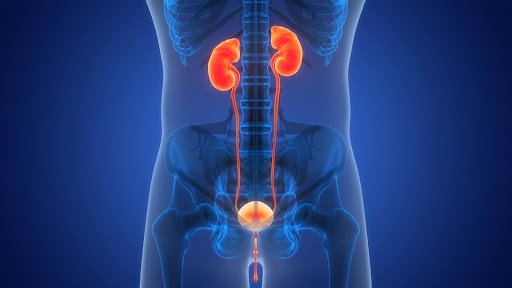Kidney Transplant Cost in India
Kidney transplantation is a common treatment in India. India has numerous kidney transplant centres in both government-funded and commercial hospitals, which provide transplantation services to individuals in need.
Advances in kidney transplantation technology, surgical expertise, & post-transplant care have made it a considerably safer and more commonly performed procedure. The country has a large number of skilled transplant surgeons, nephrologists, and healthcare personnel who specialise in kidney transplantation.
Kidney transplantation can be done with kidneys from living donors, including close family members. Patients who do not have living donors may also consider deceased donor kidney transplantation. Studies have demonstrated that living donors have longer kidney graft function than deceased donors.
The availability of organs, transplantation techniques, and legislation might change over time and across areas. It is recommended that you check with healthcare specialists or kidney transplant clinics in India for the most up-to-date information on the current state of kidney transplants.

Kidney Transplant Cost in India
- For a Living Donor Transplant: The total package cost typically ranges from ₹5,00,000 to ₹12,00,000 INR (approximately $6,000 to $14,400 USD).
- For a Deceased Donor (Cadaver) Transplant: The cost is generally higher, ranging from ₹7,00,000 to ₹15,00,000 INR (approximately $8,400 to $18,000 USD), due to additional organ retrieval and preservation charges.
This cost is significantly lower (about 1/10th) than in countries like the US, making India a major hub for medical tourism.
Detailed Cost Breakdown (What the Package Includes)
The total cost is a sum of several components. Here’s a typical breakdown:
Cost Component | Details | Approximate Cost in INR (₹) | Approximate Cost in USD ($) |
Pre-Transplant Evaluation | Extensive tests for both donor and recipient to ensure compatibility and fitness for surgery. | ₹1,00,000 – ₹1,50,000 | $1,200 – $1,800 |
Hospitalization & Surgery | Surgeon’s fees, anesthetist’s charges, operation theatre cost, ICU stay, and room rent. | ₹2,50,000 – ₹4,00,000 | $3,000 – $4,800 |
Donor Nephrectomy | Cost for the surgery to remove the kidney from the donor. | ₹1,00,000 – ₹2,00,000 | $1,200 – $2,400 |
Immunosuppressant Medications | Crucial post-surgery drugs. Cost for the initial supply (first 1-3 months). | ₹50,000 – ₹1,50,000 | $600 – $1,800 |
Other Medications & Consumables | Blood products, antibiotics, other drugs during the hospital stay. | ₹50,000 – ₹1,00,000 | $600 – $1,200 |
**Total Estimated Package | Living Donor Transplant | ₹5,50,000 – ₹12,00,000 | $6,600 – $14,400 |
Note: For deceased donor transplants, add the cost of organ retrieval, transportation, and preservation, which can add ₹2,00,000 to ₹3,00,000+ to the total.
Factors That Influence the Total Cost
- Type of Hospital: Premium corporate chains (Apollo, Fortis, Medanta, Max) in metros (Delhi, Mumbai, Bangalore) are more expensive than reputable centers in cities like Chennai, Hyderabad, or Kochi.
- Surgeon’s Expertise: The fee of a highly renowned nephrologist and transplant surgeon will be higher.
- Patient’s Health: Additional costs arise if the recipient has other health complications (e.g., heart issues, infections) that need management before or after the transplant.
- Post-Transplant Care: This is a significant long-term cost. It includes:
- Lifelong Immunosuppressants: These anti-rejection drugs can cost ₹8,000 – ₹20,000 per month ($100 – $240 USD) indefinitely.
- Regular Follow-ups and Lab Tests: Required frequently initially and then periodically for life.
- Complications: If there are any post-surgical complications like rejection or infection, the cost of treatment will increase.
The Process of Kidney Transplant in India
The process is strictly regulated by the Transplantation of Human Organs and Tissues Act (THOTA).
- Finding a Donor:
- Living Donor: Can be a blood relative (parent, sibling, child, spouse) or in some cases, a non-related donor (requires special approval from a government-appointed committee to prove no financial exchange).
- Deceased Donor: The patient is registered on a waiting list with a registered hospital. The organ is allocated based on a national waiting list managed by the NOTTO (National Organ and Tissue Transplant Organisation).
- Essential Tests & Compatibility:
- Blood Group Compatibility: The donor and recipient must have compatible blood types.
- Tissue Typing (HLA): A test to check how well the donor’s and recipient’s tissues match.
- Crossmatch: A final test to ensure the recipient’s antibodies will not immediately attack the donor kidney.
- Legal Authorization:For living donors, especially non-related ones, a thorough legal screening is conducted by an Authorization Committee to prevent organ trafficking.
- The Surgery:The surgery lasts 3-4 hours. The recipient’s failed kidneys are usually left in place, and the new kidney is placed in the lower abdomen.
- Recovery & Post-Transplant Care:The recipient stays in the hospital for 2-3 weeks. Lifelong adherence to immunosuppressant medication is critical to prevent rejection.
Key Advantages & Challenges
Advantages:
- Cost-Effectiveness: World-class treatment at a fraction of the cost in Western countries.
- High Success Rates: Leading Indian hospitals have success rates of 90-95% for living donor transplants, on par with global standards.
- Skilled Surgeons: Highly experienced and qualified medical professionals.
- No Long Waiting Lists (for living donor): Unlike in many countries where the wait for a deceased donor can be years, a living donor transplant can be scheduled once compatibility is established.
Challenges & Considerations:
- Legal and Ethical Regulations: The process for non-related donors is stringent to prevent organ commerce. Proper documentation is mandatory.
- Long-Term Costs: The focus should not only be on the surgery cost but also on the lifelong expense of medications and follow-up care.
- Follow-up Care: International patients must plan for either an extended stay in India for initial follow-up or have a very clear plan for continuity of care in their home country.
If you are considering this, your first step should be to consult with a nephrologist at a reputed hospital in India. They will guide you through the entire process, required tests, and provide a precise cost estimate based on your specific situation.


